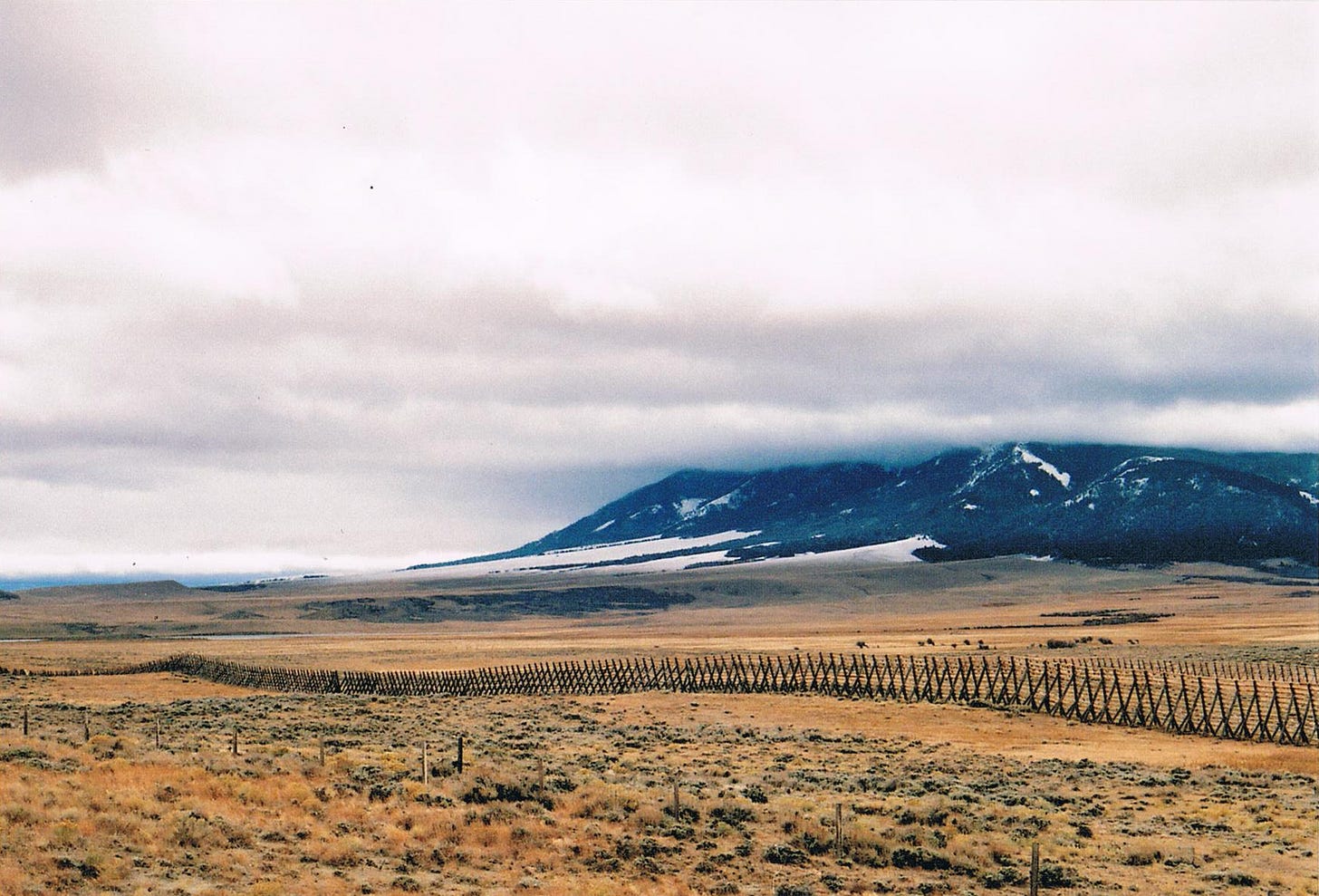The following is a guest essay by Jason Hardung, Perelandra’s reader in residence for December of 2021. Candor, self-awareness, humility—these are the hard-won qualities that make Jason one of my favorite writers working today. As the fist of time shatters our illusions, he’s gently sweeping up the shards. — Joe
When I was seventeen, a sea urchin was stuck in my throat. That’s what it felt like. My throat was almost swollen shut. And with a fever of 104, I could feel my brain sizzling in my skull. Sick, back-to-back with strep throat then pneumonia, I was out of school for two weeks. I kept dreaming the same strange dream over and over. A fever dream, an algebraic dream. Green numbers like shit-eating flies circling around in my head. Almost as if I were awake and asleep at the same time. There was one equation that needed to be solved and if I didn’t solve it, I would never be able to leave. I’d be stuck in that parallel plane of subconsciousness forever and everything I had ever loved would be destroyed. There was no solution because the equation wasn’t real and even if it was, I wouldn’t have known how to solve it. I’m a No Good Will Hunting. I hate math, never made it past Algebra 1. I’d wake up, fall back to sleep and the dream would pick up where it left off. It was impossible to get any real rest.
One morning I woke to a mattress cool with sweat. The fever had broken. I felt better than I had in a long time. All fresh, like I had squirmed out of a cocoon. If I were beautiful, I’d say I was a teenage butterfly, but I was awkward and hadn’t grown into my face or limbs yet. So, let’s say moth. I was a teenage moth. And the strangest part of this new awakening was an intense desire to write poetry. Although, I had recently begun reading poetry, I’d never written a poem before, never written anything besides what school required.
I pulled out a notebook and began writing. Words came quickly. Lines, images, metaphors surged through my head. I couldn’t write fast enough. Perhaps the fever burned through some spongey grey wall in my brain, opening to a place of creativity and purpose. A place I wasn’t aware I had in me. I’m not saying I was a prodigy or anything. The poems were terrible, but I kept writing, my instincts as a guide. Whatever felt right at the time, one poem after another. When I returned to school, I wrote poems in class, ignoring whatever we were supposed to be learning. Especially in math. A class I would eventually end up flunking, because of my new passion for poetry. I’d get home from school and write. I stole poetry anthologies and textbooks from the library, studied them more than I ever studied actual schoolwork. And I kept it all a secret. Teenage boys in Wyoming weren’t supposed to write poetry, especially back then. They were supposed to soup up old Novas and get in fights in the McDonald’s parking lot. Get shit-faced on a tailgate in a field somewhere. Because of the secrecy, poetry felt dangerous. Danger made me feel alive.
The passion for poetry stayed with me for the next couple years. But once I was out of school and free to do whatever I wanted, I became one of those guys getting fucked-up on a tailgate in a field. All my friends did the same thing and the more I got fucked-up, the less I felt like writing. And once I tried the hard stuff and started putting dope in my arm, poetry and everything else fell by the wayside. It was a full-time job trying to keep from being dope sick. That room of creativity and purpose had been walled in once again, perhaps gone forever. It was like one day I looked up and I was thirty years old. I told myself I was going to quit. I tried and there was pain. I tried as the seasons went by and the sun got warmer and the leaves greener. I tried but the pain was too much, the leaves died and fell from great heights and the snow fell from greater heights still and I tried again. I swear I tried. I tried when I was thirty-one, thirty-two, thirty-three. Fifteen years had passed and I hadn’t written a damn thing.
At thirty-three I got sober. Was my love of the written word a fluke? Would it come back? It didn’t for a while. But I pulled out the notebook and kept at it. Without substances to numb, everyday life was abrasive. But there was a shining dot on the horizon and that dot was hope. Some days it flared and blinded and some days it was barely a speck. It was there though, and I was going to make sure it would never burn out. I decided then I was going to dedicate my life to the craft of writing—poetry, fiction, whatever it may be. I didn’t care how poor or hungry or alone it would make me. I’d get through it and I’d reach that spot on the horizon one day. That year was the first time my poetry was published, at thirty-five years old.
*
I’ll turn fifty in a few weeks. I never imagined myself the age I am now. The oldest I ever saw myself in day-dreams was late-twenties. And that was when I was a kid. A kid imagining who I would be at twenty-eight. As far as dreams go, it wasn’t rose-colored. Most people see themselves being wealthy or happy or both. I saw myself being a broke single father. I couldn’t describe the wife who left me, or much about the two young sons she abandoned. But I loved those boys, even if they were made-up boys. My own father raised me and my brother by himself. That’s why it was so easy dream up this scenario. I wanted to be just like him, I guess.
In those days, we were poor and gas was cheap. For something to do, Dad would take us on long drives out in the country. Mountains and plains, aspen and sage passing by outside the window. Dad behind the wheel rambling on, telling us stories of his life. Like when he was a teenager and caught a bunch of rattlesnakes on the plains outside of town. He cut their heads off and tossed them in a duffle bag. He took the bag to the high school in Burns, Wyoming. A tiny whistle-stop of three hundred people, twenty minutes east of Cheyenne. As classes dismissed, he dumped the bag of snakes in the hallway. Long snakes flopping around lost looking for their heads. Kids screaming in terror, dancing around on their toes. Pure chaos, Dad said. He said the sheriff banished him from Burns, for life. Dad passing down part of himself in that way, to my brother and I, that seemed like the coolest thing to me. Because look, now I’m passing it on to you. The rattlesnake story lives. Leaving a bit of yourself, your experience, in the mind of another person in that way. What could be more god-like than that?
The older I get, the easier things fall apart. The likelihood of being forgotten is immense. You die, people are sad for a while. Your whole existence is distilled down to a five-minute slide-show at the end of your funeral. The people who love you watch it and go home and learn to live without you. I just want to be remembered. I want to be a part of history. And I hope history will still be a thing when I’m gone. That past and present don’t get washed away by a gigantic tidal wave or burned off earth in a nuclear war like the ticks we are. I’ve tried to keep my life wide open so I could concentrate on writing. I’ve sacrificed a social life, love lives. I have become more and more introverted. Sometimes I hate myself. And perhaps it’s egotistical to think anybody will read the things I’ve written. There are thousands of people who do it better. But my poems and stories could be eternal. There’s a chance. And that’s the only heaven I believe in.
*
Eighty-percent of the time I don’t feel inspired. Am I a conduit for God? Does he speak through my writing? I doubt it. Maybe once or twice. It usually doesn’t work like that. Writing is putting your ass in the chair when you don’t feel inspired. It’s reading other writers. Reading the ones who have been there before you. Writing isn’t only the act of, it’s constantly thinking of your work in progress or a work you don’t know about yet. Walk and think, lie in bed and think. Replace your flesh with glass. Your organs are zoo animals. Let us see your insides. Be vulnerable, handle rejection. Say the things people don’t want to hear. Just keep moving towards that speck on the horizon. That’s what I try to do.
Further reading: The burden of honest work | Jason Hardung (2021)





